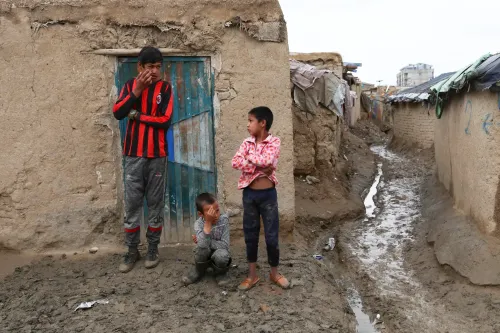How Many Lives Have Been Lost Due to Heat in South Korea?

Synopsis
Key Takeaways
- 19 heat-related deaths reported in South Korea this year.
- Over 3,100 patients have visited emergency rooms.
- Heat exhaustion accounts for 61.3% of all cases.
- Record-high power demand reached 85 GW in July.
- Longest stretch of tropical nights since 1973.
Seoul, Aug 3 (NationPress) This year, a total of 19 individuals have tragically succumbed to heat-related conditions in South Korea, as the nation faces intense heat waves, according to health officials on Sunday.
Since mid-May, when the heat-related illness monitoring system was implemented, over 3,100 patients have sought emergency medical care for heat-related ailments, with 19 fatalities reported, as per the Korea Disease Control and Prevention Agency (KDCA), citing Yonhap News Agency.
The figures reflect a significant increase, with both patient numbers and deaths more than doubling compared to the same timeframe last year.
Among the reported cases this year, heat exhaustion, commonly referred to as sunstroke, accounted for 61.3%, followed by heat stroke at 16.2%, and heat cramps at 12.8%.
Notably, individuals aged 65 and older represented 31.9% of all reported patients, according to the KDCA.
Last month, South Korea experienced its highest average daily maximum power demand due to one of the most extreme summer heat waves on record. Data on Sunday revealed the peak power demand in July averaged 85 gigawatts, a 5.6% increase from the previous year, according to the Korea Power Exchange.
This reading stands as the highest July average since 1993, when the government began tracking this data. The monthly peak was noted in August 2024, reaching 87.8 GW. The surge in July was largely attributed to the increased use of air conditioning due to the persistent heat wave.
According to the national weather agency, the number of days with daily high temperatures exceeding 33 degrees Celsius totaled 15 days last month, more than four times the July average of 3.4 days over the last 53 years of data collection since 1973.
The occurrence of tropical nights, where nighttime temperatures remained above 25 degrees Celsius, lasted for a total of 23 days in July, marking the longest duration since 1973. Authorities anticipate peak electricity demand this summer could reach up to 97.8 GW during the second week of August, maintaining a power reserve of around 10 GW.









